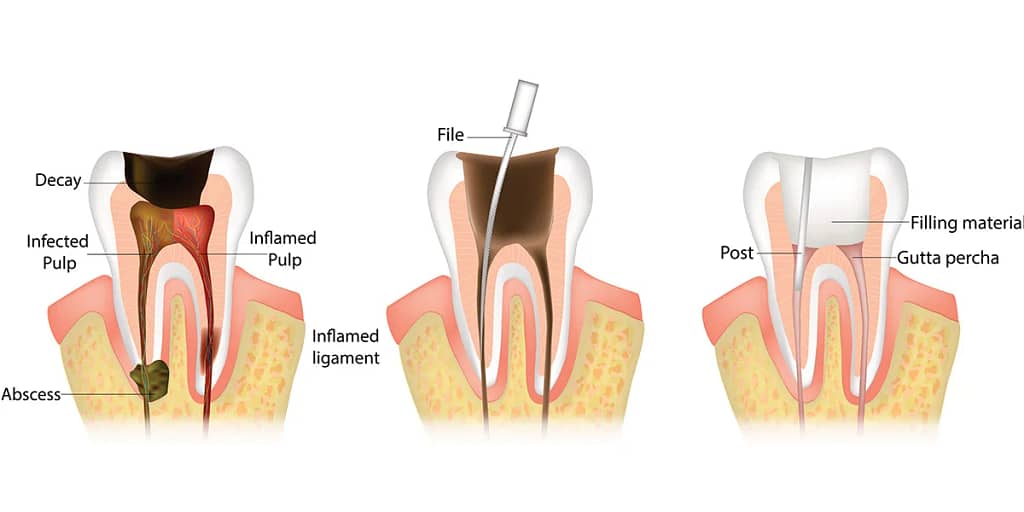A general dentist or an endodontist performs a root canal, and it takes one or two visits to complete this procedure. Our dentists will take an X-ray of the tooth to check the extent of the damage. The root canal procedure is performed under local anesthesia, and the decay is removed through an opening made through the crown of your tooth.
The decayed pulp and root are removed from your tooth using a dental instrument. Then the pulp chamber and the root canals of your tooth are flushed and disinfected. The root canals of your tooth may be reshaped or enlarged, so it is filled easily.
After this step, the pulp chamber and the root canals are filled with filling. The filling is usually a mixture of a sealer paste and a rubber compound, followed by a dental filling.
In the final stage, a crown, an artificial tooth, is placed over the filling. A metal post is inserted to keep the crown in place and attached to the tooth. It is done when a significant portion of the natural tooth is missing and doesn’t happen in all root canal cases.
